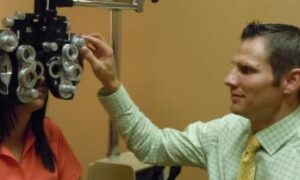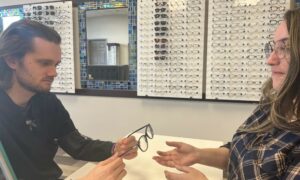
Sept. 2, 2015
Patients may not realize the damage and strain to their eyes, which the use of digital devices may pose, findings from The Vision Council’s 2015 Digital Eye Strain Report suggest. Nearly one-third of adults (30 percent) spend more than half their waking hours (9+) using a digital device, according to the report. However, 72.5 percent of adults are unaware of the potential dangers of blue light to their eyes.
Blue light is a current hot topic. Informed patients are going to ask about blue light. It is important to be knowledgeable about this topic, and to go one step further and be proactive in managing the care your patients receive with respect to blue light. Here are a few publications that are helpful in getting this topic in perspective.
Review of Optometry – a sister publication to Review of Optometric Business – published a great article on the damage potential from blue light. The article was written by Mark Dunbar, OD, and Ronald Melton, OD.
Harvard Health Publications also has an article on the danger of blue light. This article includes four helpful steps that you can share with your patients:
1) Use dim red lights for night lights. Red light has the least power to shift circadian rhythm and suppress melatonin.
2) Avoid looking at bright screens beginning two to three hours before bed.
3) If you work a night shift, or use a lot of electronic devices at night, consider wearing blue-blocking glasses.
4) Expose yourself to lots of bright light during the day, which will boost your ability to sleep at night, as well as your mood and alertness during daylight.
The American Macular Degeneration Foundation web site contains helpful information that can be shared with your patients and linked to on your web site. There is a very nice description in this article about the “… misleading claims about certain glasses providing UV protection …” that are confusing to consumers.
ROB sister publication Vision Monday also published a helpful article on blue light.
For balance, you should consider the argument proposed by James Sheedy, OD, PhD, a professor at Pacific University College of Optometry, as reported in USA Today.
He takes the position that, although blue light can damage the retina, the radiation from digital devices is much less than any daylight outdoor environment. In view of this, protection from damaging light outdoors may be much more important.
Take this week to come to clarity on your position on blue light, and then create and implement protocols in your office to both educate patients and prescribe lenses that protect your patients from damaging blue light.

























